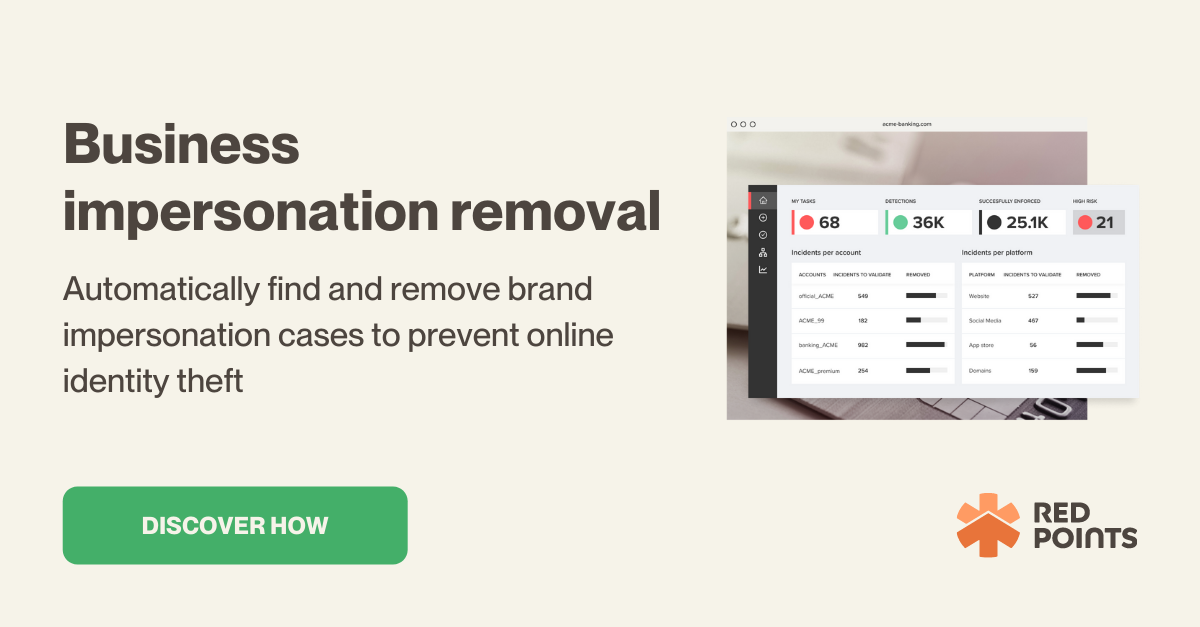
Table of Contents:
Last updated on: April 3, 2024
Although crypto adoption continues to grow, as brands and businesses are beginning to use Bitcoin to conduct transactions more than ever before, Bitcoin theft remains a significant concern for users.
Bitcoin itself is nearly impossible to hack, thanks to blockchain technology. However, the wallet you store it in can be much less secure.
Bad faith actors and hackers often exploit the loopholes and security flaws of vulnerable Bitcoin wallets and drain them of their funds.
According to data compiled by Chainalysis, a blockchain analytics firm, around $1.4 billion has been stolen from these cross-chain bridges since the beginning of the year. The greatest single occurrence was when hackers stole a record $615 million from the bridge supporting the non fungible token game Axie Infinity.
The Horizon bridge operated by Harmony was the latest cryptocurrency cross-chain vehicle to be hacked, resulting in a loss of $100 million, or around two-thirds of the company’s entire capital. The stolen tokens included a variety of blockchain tokens, including ether and BNB, as well as stablecoins like UDST, USDC, and dai, and DeFi tokens like AAVE and SUSHI.
Learning how to protect your Bitcoin from getting stolen by hackers isn’t optional but rather it is an absolute necessity.
In this article, we discuss:
Since its inception in 2009, no one has managed to hack into the Bitcoin network. There have been incidents where individual wallets or exchanges have been hacked, but not the network as a whole.
Still, it is important to note that buying and selling Bitcoins involves several steps that could expose users to security vulnerabilities.
Hackers steal Bitcoin in two ways: directly or by tricking users into sending it to them.
Brands and businesses who want to invest in Bitcoin often do so through a blockchain exchange. This method involves creating an account and depositing fiat money, which is then turned into Bitcoin. Bitcoin is then stored in a wallet known as a custodial wallet.
In this type of wallet, only the exchange can access the private keys needed to access and control your coins. Because these wallets are connected to the internet (which is why they are called “hot” wallets), they are vulnerable to exploits.
Like traditional banks, blockchain exchange networks hold crypto in “hot” wallets for customer transactions. The rest of their crypto is stored offline with wallets that are not connected to the internet (“cold wallets”).
Bitcoin hackers often target the accounts of internal employees working in crypto exchanges through various methods to access their customers’ custodial wallets. Once they successfully breach an account, they can pull off a heist.
Here are some security best practices on how to protect your Bitcoin from hackers
1. Use a cold wallet
Cold wallets store Bitcoin offline on hardware devices like USB drives. These physical wallets are less vulnerable to cyberattacks than hot wallets. However, cold wallets have one major con if a user loses their wallet password, they lose all their funds inside it.
2. Use unique passwords
Studies have shown that 51% of people use the same password for personal and business accounts. Use strong, unique passwords to safeguard your crypto account.
Completely random passwords are the hardest to hack. That being said, it is also advisable to jot your password down somewhere and keep the note somewhere secure in case you forget the password.
Here are some password tips.
It’s also recommended to use two-factor authentication (2FA) or multi-factor authentication (MFA) for added security, making it harder for hackers to access crypto exchange accounts.
3. Use multiple wallets
A standard best practice to avoid suffering irrecoverable losses in the event of a hack is to save your Bitcoin in multiple wallets.
Split up your Bitcoin funds. Use a “hot” wallet for daily transactions and a “cold” wallet for long-term savings.
This way, even if one wallet is hacked, you still have something to fall back on.
Crypto fraudsters are becoming increasingly smarter every day, and Bitcoin scammers are always finding new ways to steal money.
Here are three tell-tale signs of a Bitcoin scam.
Bitcoin, like any cryptocurrency, is subject to volatility and the risk of loss. Any individual promising you a definite reward for trading your Bitcoin with/on them is not to be trusted.
You may come across these types of fraudulent offers on many social media platforms or even message boards that are usually dedicated to cryptocurrency. You should be very suspicious of these offers, even if they appear at first glance to come from a respectable source. There are many instances where brands or celebrities are impersonated these impostors post fake links or fraudulent advertisements that actually trap whoever falls for their scam.
All companies market themselves. However, Bitcoin scammers attract new victims by pouring resources into marketing (including paid social media influencers, traditional forms of advertising, and other forms of publicity). The aim is to reach as many individuals as possible and steal their Bitcoin as fast as possible so they can shut down the scam and go “on the run” before anybody can link them to the crime. If you get the impression that the marketing for a crypto business is being pushy or making grandiose claims without providing evidence to support them, you should take a step back and perform some additional investigation. It’s also worth taking a second to consider the medium they are using to push their messaging, are they using a credible influencer that often discusses economics or the crypto market? Or are using less credible pages to push messaging such as message boards or accounts that have little to no followers?
Although Bitcoin promotes anonymity, any reputable cryptocurrency business should have its key people listed and easily identifiable. This includes easy-to-find biographies of its founders and an active social media presence. Be wary of trading Bitcoin with businesses if you can’t determine who is behind their operation.
As a general rule, it’s always suggested to carry out thorough due diligence before investing in anything, particularly in the crypto world where value can be impacted by something as simple as a single tweet. Knowing who is behind a particular crypto currency is important, but also knowing who supports it can be helpful evidence that they are legitimate as well.

Recovering stolen Bitcoin is difficult. Cryptocurrency deposits are not insured or backed by any government, and Bitcoin transactions are irreversible.
Although you can easily track the movement of your funds by looking at the blockchain ledger, the pseudo-anonymous and decentralized nature of Bitcoin and the fact that the thief would likely use a Bitcoin exchange to convert your Bitcoin to fiat currency instantly means the chances of you getting your funds back are unfortunately very low.
Here is what you should do if you discover your Bitcoin has been stolen
Bitcoin theft is a serious crime that should be reported to authorities immediately. Informing the authorities may not retrieve the lost funds, but it may help track down the culprits based on evidence from other victims.
This way, you will be able to recover your funds if the police apprehend the scammers.
It also guarantees you a measure of legal support in the event of legal troubles. Having evidence that shows you took the loss seriously can be beneficial in court.
If you are willing to spend a reasonable amount to have your Bitcoin returned to you, there are websites where you may post a bounty offering a reward for the person who can help you recover your funds. The theft will be investigated by knowledgeable blockchain searchers, who will assess whether or not the coins may be retrieved in exchange for a fee.
If your crypto is stolen on an exchange, notify the platform immediately. Delaying tracking may allow hackers to move your money to a cold wallet and subsequently to other exchanges, hiding their trail.
Before converting crypto to fiat currency or trading, most exchanges require KYC (Know Your Customer) data, such as names and addresses. Once you report the situation, the platform will be able to assist in tracking down the scammer. This is another reason why a police report is vital.
As is expected, Bitcoin scammers target web3 and crypto-friendly brands and businesses. While there are several types of crypto scams, the 3 most common Bitcoin scams are
This is when a fraudster contacts a brand, usually via email, with false messages designed to make them leak their crypto password details. The hacker might offer rewards in exchange for a user depositing funds on a fake website, ask them to input their password on a fake giveaway site, and other forms of malicious social engineering. A standard best practice is to avoid clicking and connecting your wallet to any website you cannot trust.
In investment scams, a hacker or a team of hackers will create a fake but highly believable version of a real crypto trading platform. To get people to believe that the platform is real, they might post fake ads on social media and hire content influencers to “shill” their site. The aim is simply to get people to make cryptocurrency deposits.
Once that is done, the hackers might even let them trade. But they won’t be able to cash out their investment earnings or principal capital.
Bitcoin scammers can create a phony profile that looks remarkably similar to a well-known and respected business figure and reach out to innocent brands for “help” or “consultation”.
Once they establish contact with their victims, they may ask for cryptocurrency to cover unexpected costs, like medical care. Swindlers may also try to lure their victims into Bitcoin trading with them. Hackers may instruct victims on how to open a cryptocurrency account if they do not already have one. The hackers might even suggest that their victims download and install malware on their devices that will give them access to their victims’ accounts.
You can protect your brand from falling victim to impersonation scams by using Red Points’ impersonation removal software!
The cryptocurrency Bitcoin itself cannot be hacked. However, the wallet it is stored on can be vulnerable to security exploits.
Because of Bitcoin’s anonymous and decentralized nature, the chances of retrieving stolen Bitcoin are quite low. A proactive approach works best to prevent your Bitcoin from being stolen by hackers. Learn how you can protect your business from scammers using Red Points’ impersonation removal software!
A proactive approach is the best way to stop you and your brand from losing Bitcoin to scammers. Stop crypto scams targeting your business today using Red Points’ Impersonation Removal software!
